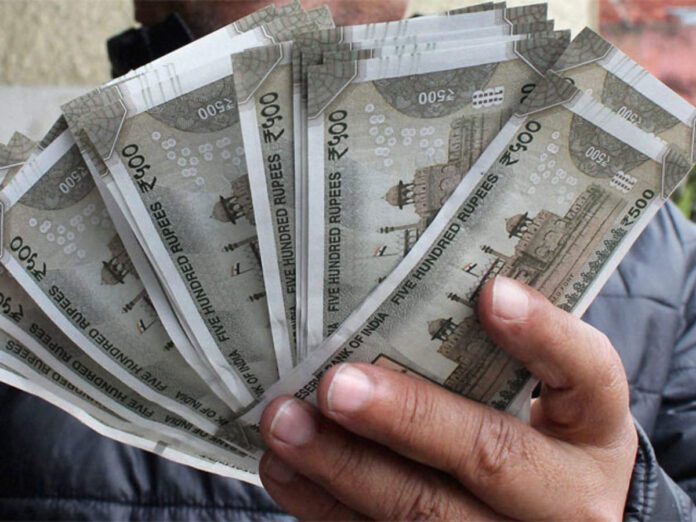Income tax on cash transactions: Under the Income Tax Act, 1961, a limit has been fixed for cash transactions. This Act also prohibits deductions, allowances, expenses etc. given in cash.
The government wants to promote digital transactions. Therefore, rules have been made to prevent payment in cash beyond a fixed limit. Many times people are not aware of the rules and end up causing loss to themselves, because violation of rules attracts a penalty. Remember that the Income Tax Department keeps a close watch on large cash transactions.
How much penalty will be imposed for cash transactions exceeding the limit?
Let us tell you that under the Income Tax Act, 1961, a limit has been fixed for cash transactions. This Act also prohibits deductions, allowances, expenses etc. given in cash. The Income Tax Department warned that if transactions above a limit are settled through cash, then if caught, the Income Tax department will impose a fine equal to the amount paid in cash.
It is important to know about tax rules on cash transactions
Many times people unknowingly make cash transactions above the limit and then later they have to pay a heavy fine. Therefore, one should be aware of the rules, so that such mistakes can be avoided.
The Income Tax Department said in a brochure released on January 2, 2025, “Say “no” to cash transactions. Many information related to cash transactions have been shared in the brochure. It has been told that the limit of cash transaction i.e. the nature of the transaction and who is executing it.
In the brochure, the Income Tax Department has given what rules related to cash, let’s know:
1. Section 269SS: Taking/accepting loans, deposits and specified sums in cash
No person can accept any loan or deposit or other specified sum in cash if the amount (or aggregate of amounts) is Rs 20,000 or more. Specified sum means taking any advance or any sum in respect of transfer of immovable property.
This rule does not apply to:
A government banking company, post office savings bank or co-operative bank (but not all co-operative societies, whether engaged in banking or related activities or not).
A corporation established by a Central, State or Provincial Act.
A government company falling under section 2(45) of the Companies Act, 2013;
A notified institution, association or body (or class of institutions, associations or bodies).
The above order does not apply even if both the person giving cash and the person taking it are earning agricultural income and neither of them has income taxable under the Income Tax Act, 1961.
Penalty for violation
In case of violation of this rule, under section 271D of the Income Tax Act, the same amount as the amount taken in cash will have to be paid as a penalty.
2. Section 269 ST: Receiving money in cash
Under section 269ST of the Income Tax Act, a person is prohibited from receiving an amount of Rs 2 lakh or more in cash in a day. This rule applies to everyone, whether the person is a taxpayer or not.
Under this rule, an amount of more than Rs 2 lakh cannot be taken in cash in the following situations:
This much amount in total from one person in a day: An amount of more than Rs 2 lakh cannot be taken in cash from a single person in a day.
For a single event or occasion: For any single event or occasion, such as marriage, birthday, etc., an amount exceeding Rs 2 lakh cannot be taken in cash from a person.
Who does this rule apply to?
Fees charged by educational institutions and hospitals, donations made by religious institutions and transactions between two related persons or in which both the receiver and the giver are exempt from tax.
This rule does not apply to
Government or any banking company, post office savings bank or any co-operative bank (but not all co-operative societies, whether engaged in banking or related activities or not).
Penalty for violation
The Income Tax Department said, “Whoever has taken cash in violation of the above order will be fined under section 271DA for the amount taken in cash.”
3. Section 269T: Repayment of loan or deposit
A person cannot make payment of Rs 20,000 or more in cash. Government, banks, post office savings banks are exempted from this rule.
Penalty for violation
Under section 271E, the amount paid in cash will have to be paid as a penalty.
Section 269SU: Accepting payment through electronic mode
Those whose annual turnover is more than Rs 50 crore will have to provide the facility of accepting payment through prescribed electronic methods.
Penalty for violation
Violation of the rule will attract a fine of Rs 5,000 per day under section 271DB. Actually this brochure is a compilation of the provisions related to cash transactions. Through this, the government wants to make people aware about the penalty imposed on cash transactions. The government is trying to make people avoid paying in cash even for small transactions so that digital transactions can be promoted.


